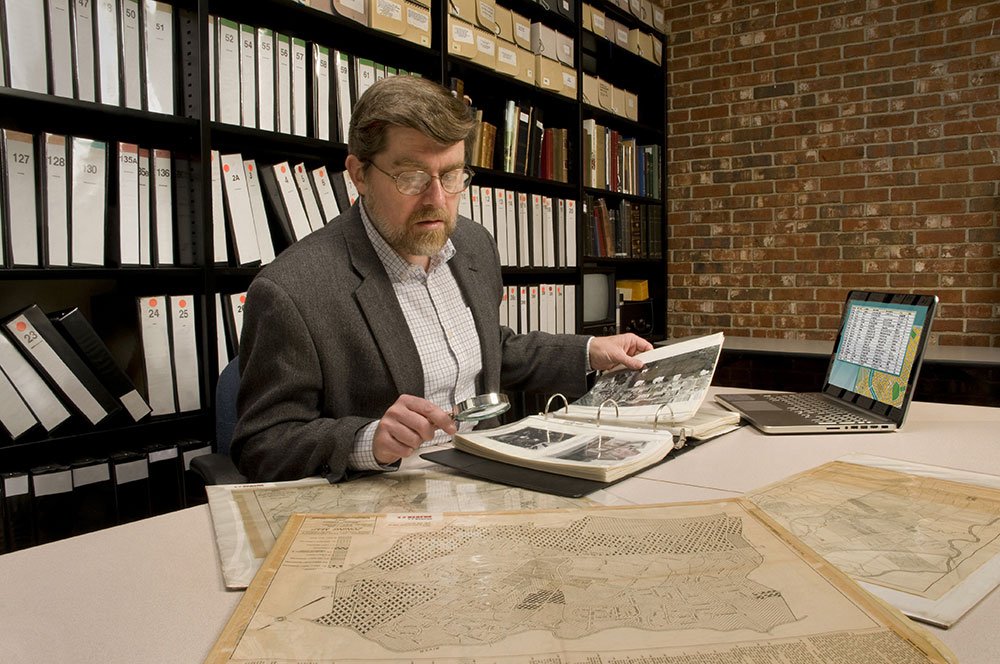Disclaimer: The information on our website is provided for general information purposes only. We make no representations or warranties of any kind, express or implied, about the completeness, accuracy, reliability, suitability or availability with respect to the website or the information contained on our website for any purpose. Any reliance on such information is therefore strictly at your own risk and we are not liable for any damages or losses arising out of or resulting from your reliance on any information contained on our website.
An archivist is key to preserving important historical documents and material. They are educated to be able to authenticate and appraise the asset they are working with and would research historical facts related to it. Along with appropriately archiving and cataloging, archivists also make digital copies should the integrity become compromised and for others to view the material online or shared electronically.
Watch a video to learn what an archivist does:
How to Become an Archivist
To become an archivist, you would typically earn a master’s degree in a program like library or archival science or history. However, few colleges and universities offer the specific degree program of archival studies so you will want to research colleges carefully. This means, If you are seeking your degree in a closely-related field, you will want to ensure you gain archiving experience through an internship or volunteer work while seeking your degree. Having a conversation with a college guidance counselor before enrolling in a degree program would be helpful to ensure your college degree matches your career ambitions.
Job Description of an Archivist
You already know the an archive will preserve, and of course, archive historical documents. However, they do more than that. Along with documents, an archivist may also work with and preserve other material such as manuscripts, photographs, maps, videos and film, sound recordings. They also help showcase this material in exhibitions.
It’s not uncommon for archivists to educate the public during tours or lectures. That makes this position unique as those in this career get to share their love of history and what they do with others. Some archivists even specialize in a specific area of history to learn all they can about the time period surrounding the material they work with.
Archivist Career Video Transcript
From a turn-of-the-century love letter to an old map that settles a modern property dispute, important records of the past are collected and preserved in archives. They are organized and cared for by archivists. Archivists patiently sort historically valuable paper, objects, film, and electronic records, deciding what’s worth keeping and what’s not. The work may require researching the items to verify their origin and value. Strong organizational skills are essential.
Archivists must be able to catalog the items so that they can be easily located. They create and maintain computer databases, and create film and digital copies of archival materials. Most archivists also have a public outreach role, coordinating and leading tours and classes. Although usually quiet, the workspace can be crowded with stored materials. The job may require bending to lift heavy boxes and climbing ladders to reach high shelves. Archivists usually specialize in a particular area of history. They may work for museums, libraries, even corporations, anywhere records and related items are saved.
Employers look for graduate degrees in history or library science, along with experience working with historical materials. Certification by the Academy of Certified Archivists can give you an edge. This is a job that goes far beyond simply keeping track of old documents. Archivists are vital guardians of fragile and often irreplaceable history.
Article Citations
- Bureau of Labor Statistics, U.S. Department of Labor, Occupational Outlook Handbook, Curators, Museum Technicians, and Conservators.
- National Center for O*NET Development. 25-4011.00. O*NET OnLine.

